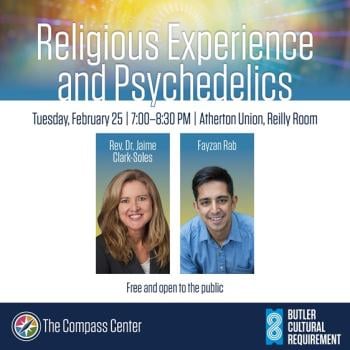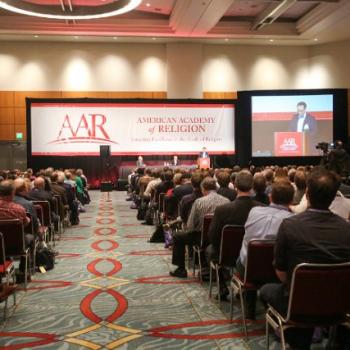I want to provide two lengthy excerpts from a much longer interview of Jeff Kripal from the AAR’s Reading Religion book review site. Here’s the first, on the scientific method:
The success of science depends entirely on what it refuses to look at—the only reason science gets to explain everything is because it gets to say what everything is. If you or I want to put things on the table that science cannot study, those things are dismissed as not real or merely anecdotal, and so they’re taken off the table. Science can explain everything because science controls what’s on the table. Of course, the scientific method is the best way to understand everything on the table because the scientific method determines what goes on the table and what doesn’t. I like to put it this way: our conclusions are a function of our exclusions. We draw conclusions about what’s possible because of all of the things we’ve already decided are impossible. But, in fact, those impossible things happen all the time. Yet we are constantly told (because it is in fact not at all clear) that these states are only anecdotal, an illusion, a hallucination, or just a coincidence. Those are simply rhetorical devices designed to control what’s on the table. That’s all they are. Once we put them back on the table, of course, we will need other methods, other ways of knowing. This is what I call the future of knowledge.
And on what he calls “cosmic humanism”:
To begin with, cosmic humanism locates human beings in the whole cosmos, not simply in the miniscule slice of space-time we call “history.” It’s not a contained view of human beings. It’s open to all kinds of cosmological views of what the universe is and what human beings might be as highly evolved expressions of that same universe. Cosmic humanism explodes the recent, linear, historicist views of what human beings are by locating the human condition in a vastly greater context—a literally cosmic one.
We often talk about secularism or the science and religion conversations as if there were just two options: we can believe in some past religious worldview that’s totally implausible, or we have to be secular scientific materialists and sign our names to the idea that there is no meaning in the universe and no such thing as consciousness. I find both of those options completely unbelievable. I also find them either absurd or depressing, depending on which one you take.
Cosmic humanism, in contrast, takes what I would call an essentially religious perspective on the human condition (it does not look away from constantly reported experiences of transcendence, for example) but relies on the developing sciences, not on past religious tradition, for new metaphors, myths, and ways of thinking about these extreme events. In other words, it gives us a new way of thinking about the world and about ourselves without us having to subscribe either to past unbelievable beliefs or to the materialist framework that scientists happen to inhabit at the moment (at least in their day jobs). We can toggle back and forth between these transcendent and imminent pictures without subscribing to any particular religious worldview or any present interpretation of the sciences…
[C]osmic humanism is often wildly optimistic, positive, even ecstatic. It’s forward looking, not backward looking, which I continue to think the religious impulse essentially is insofar as it’s focused on believing in some past revelation that occurred a long time ago. Actually…, cosmic humanism is another kind of temporal flip, because it flips us from a traditional orientation that looks to the past for the full truth to one that looks toward the future for a fuller truth, which, of course, never quite arrives. The horizon is always approaching, and always receding.
Click through to read the entire thing. It definitely has me looking forward to reading his new book The Flip: Epiphanies of Mind and the Future of Knowledge!
Given the kinds of things Kripal writes about, this also seemed worth sharing here…
https://marginalia.lareviewofbooks.org/tripping-enlightenment-science-religion-psychedelics/














